
PFUJ calls for end to Impunity for Crimes Against Journalists
November 02, 2025: PFUJ urges Pakistan’s federal and provincial governments to end Impunity for Crimes Against Journalists and ensure their safety and press freedom.
JournalismPakistan.com | Published 13 years ago
Join our WhatsApp channel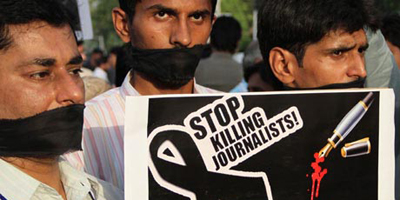
As the United Nations Human Rights Council prepared for its Universal Periodic Review of Pakistan, Reporters Without Borders (RSF) expressed alarm over growing threats to journalists’ lives and safety in many regions of the country.
The free press organization, which has official consultative status with the UN, had recommended as recently as April a series of measures designed to protect journalists in Pakistan.
“A mere six months after our recommendations, media workers face even greater danger,” Reporters Without Borders said on the eve of the 30 October review. “The number of journalists killed continues to increase, and most of the investigations opened into these murders remain inconclusive, contributing to an intolerable level of impunity.”
The organization demanded that the Human Rights Council put Pakistani authorities on notice that journalists must be protected from the daily threat of violence from armed groups.
Eight journalists have been murdered in Pakistan since last January: Abdul Haq Baluch, Abdul Qadir Hajiazi, Abdul Razzak Gul, Tariq Kamal, Aurengzeb Tunio, Murtaaza Razvi, Syed Saleem Shahzad and Mukarram Khan Aatif.
Moreover, media workers face a mounting number of threats. Most of these come from armed Taliban and Baloch separatist groups, or are tied to government intelligence services.

November 02, 2025: PFUJ urges Pakistan’s federal and provincial governments to end Impunity for Crimes Against Journalists and ensure their safety and press freedom.

November 02, 2025: Impunity for crimes against journalists deepens worldwide as Pakistan reports a 60 percent surge in attacks and weak enforcement of safety laws.

November 01, 2025: Pakistan Press Foundation reports 137 attacks on journalists in 2025, highlighting rising threats, legal harassment, and censorship on the International Day to End Impunity.

November 01, 2025: A viral Samaa TV clip featuring MNA Sher Afzal Marwat’s crude remarks and Talat Hussain’s laughter raises questions about the declining ethics of Pakistani television.

October 31, 2025: Police foiled a plot to kill DawnNewsTV journalist Tahir Naseer in Rawalpindi after arresting suspects hired for Rs200,000. Naseer says threats followed his reporting.
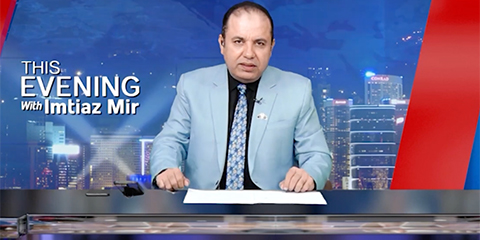
October 31, 2025: CPJ calls on Pakistan to bring Imtiaz Mir’s killers to justice after the journalist was allegedly murdered by a banned militant group in Karachi.

October 30, 2025: The PFUJ has condemned a fabricated drug case against journalist Matiullah Jan, calling it an attempt to silence him and urging authorities to quash the charges immediately.
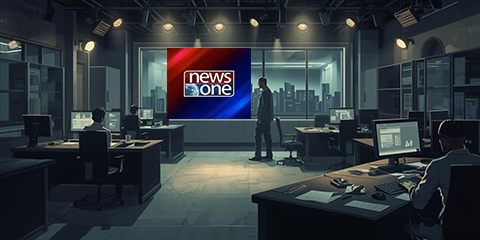
October 30, 2025: NewsOne TV remains on air but faces mass layoffs and delayed salaries, exposing Pakistan’s worsening media crisis and financial instability.

November 02, 2025 Independent outlet All About Macau to halt print and online operations amid rising pressure, financial strain, and legal threats, sparking press freedom concerns in the city.
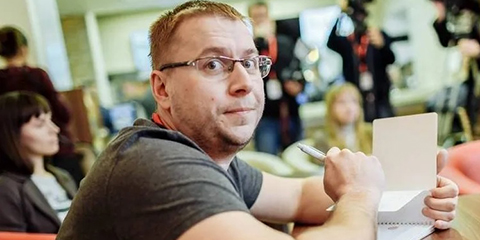
November 01, 2025 Belarus court jails journalist Siarhei Chabotska for extremism and defaming the president, highlighting Minsk’s ongoing crackdown on press freedom.
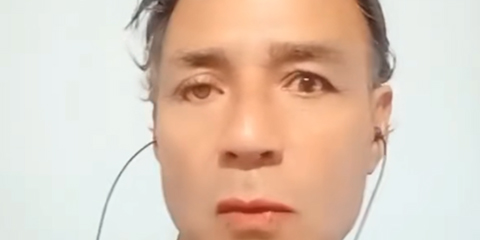
November 01, 2025 Mexican journalist Miguel Angel Beltran was found murdered in Durango. CPJ urges authorities to ensure justice amid rising violence against journalists in Mexico.

November 01, 2025 UNESCO survey finds one-third of media lawyers cannot effectively defend journalists due to threats, limited resources, and lack of specialization.
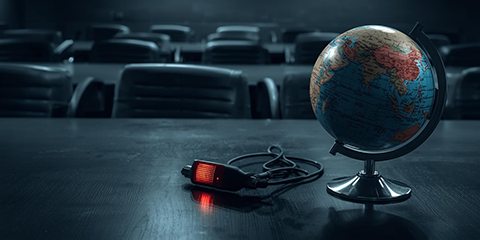
October 31, 2025 Radio Free Asia, a US government-funded broadcaster covering tightly controlled Asian media environments, has suspended all news operations after federal funding dried up.